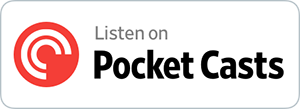066 - Documenting The Process
24 Apr, 2018
One thing that I’ve learned can really help along the learn-to-code process is documenting as you go. Whether it’s vlogging, blogging, or a simple pen & paper, tips from your past self can be an excellent learning shortcut.
I’ve been reminded of this recently, as I believe I’ve hit another stumbling block on my quest of becoming a professional developer. In fact I was getting set to record a second ‘stumbling block’ episode when I went back to the podcast episodes I recorded last year when I first had these difficulties, and instead was reminded of the things I found helpful at that time to get out of the funk and keep making progress.
The first was remembering not to beat myself up over losing momentum. Learning a new skillset is a huge undertaking and it’s bound to have times of both high and low momentum. There’s absolutely no value in reprimanding myself for slowing down for a few weeks!
The second benefit was remembering what led to the stumbling block last year…turns out some of the same life events are happening now, so is it really a surprise that I might have a similar response?
The third and biggest benefit helped plan a way forward from here. Since I can refer back to what I did last year (and I know how it worked out for me), I have a good sense of what might help me move forward this time around.
So overall, having documented the obstacles I ran into last year really helped me get to a more optimistic outlook this time around. And as a result, I think I’ve moved past it faster!
So if you want to get started documenting your own progress, what are some options? Here are a few:
- Take notes with pen & paper
- Write notes on a calendar or daily agenda as you work
- Use a project management tool like Trello
- Get involved with 100 Days of Code
- Start your own blog
- Start your own podcast
- Start vlogging on your own video channel
Don’t forget: the key is having something you can reference at a later date, so if you find an alternative to this list that’s mostly verbal (like a study buddy or success group where you check in with each other for example), make sure you’re also taking notes or meeting minutes for future reference.
The most important thing is to document the challenges you face, and how you’ve gotten through them: this will be the most valuable information to refer back to later on. After all, your success will end up in the code—it’s the failures along the way that are easily forgotten!
Show Links:
- Episode 10: Stumbling Block No 1
- Episode 12: When Learning To Code Gets Overwhelming
- Episode 63: Overwhelming Number of Coding Intros
- Episode 56: Planning A New Web Project
- Trello
- 100 Days of Code
- Episode 51: Static Site Generators
- freeCodeCamp Medium article: A month ago I knew nothing about podcasting. 50,000 downloads later, here’s what I’ve learned.






